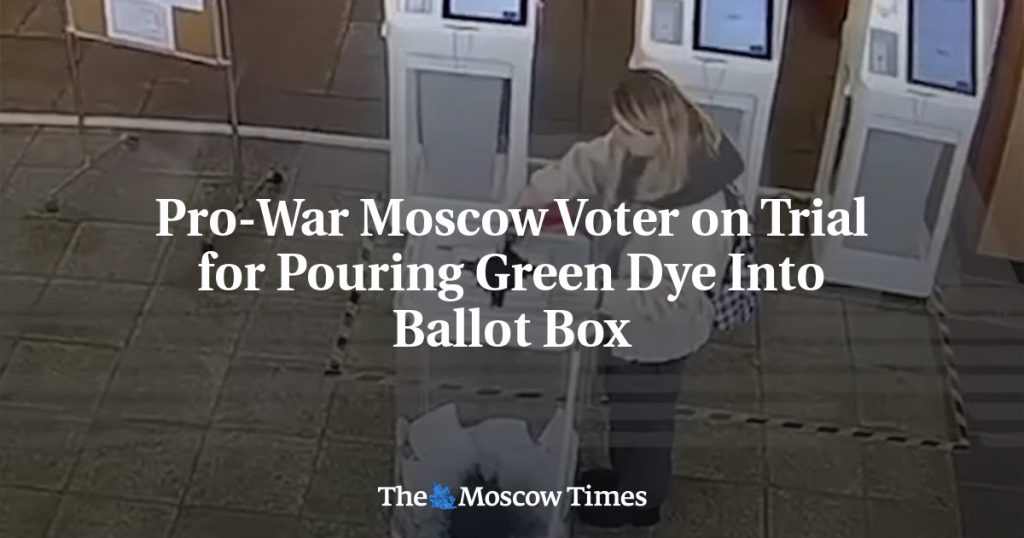A 20-year-old woman named Alina Nevmyanova is currently facing court hearings in Moscow after being accused of vandalizing a ballot box with green antiseptic dye in support of the invasion of Ukraine. She was caught on camera pouring the dye, known as zelyonka in Russian, during Russia’s presidential election last month. Officials claim that Nevmyanova and others involved in the incidents were promised money. She could potentially face up to five years in prison for obstructing voting rights. Nevmyanova claims that she was manipulated by phone scammers posing as employees of the Central Bank and the Federal Security Service, who instructed her to take the actions she did in order to prevent election fraud.
During her court appearance, Nevmyanova alleged that the scammers shouted pro-Ukraine slogans as she was being arrested, implying that her actions were politically motivated. She also accused her state-appointed attorney of pressuring her to confess to the accusations and admit that she was promised money for vandalizing the ballot box. Nevmyanova denies these claims and maintains that she did not engage in the actions described for monetary gain. She stated that she and her family have supported the Russian army during the conflict in Ukraine, where she claimed her cousin was killed on her birthday.
The judge presiding over the case decided to extend Nevmyanova’s pre-trial detention for an additional two months. The next hearing is scheduled for May 28. Nevmyanova’s defense argues that the accusations brought against her do not align with the reality of the situation. She continues to deny any involvement in the vandalism of the ballot box for financial gain and maintains that she was manipulated by the scammers pretending to be government officials. The case has garnered attention due to its connection to the ongoing conflict between Russia and Ukraine.
As the court hearings progress, Nevmyanova remains steadfast in her denial of the accusations brought against her. She claims that she was a victim of phone scammers who coerced her into vandalizing the ballot box under false pretenses. The accusations have political undertones, as evidenced by the scammers shouting pro-Ukraine slogans during her arrest. Despite the evidence against her, Nevmyanova continues to assert her innocence and states that the actions she took were under duress from the scammers. The case highlights the influence of external factors on individuals’ actions and raises questions about the integrity of the Russian electoral process.


